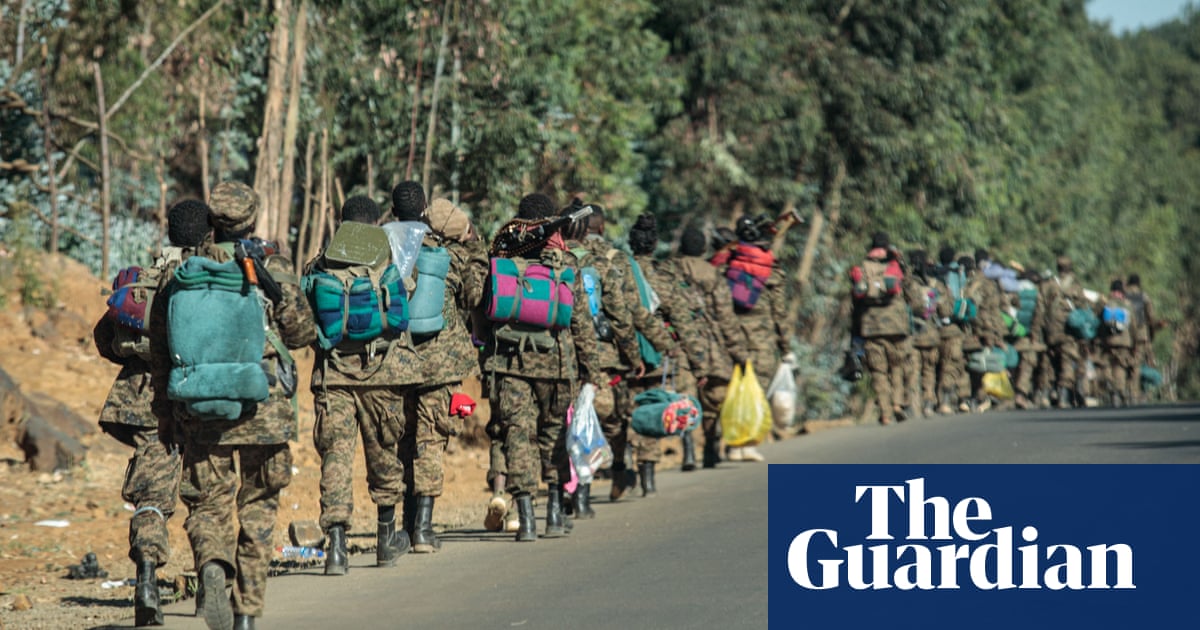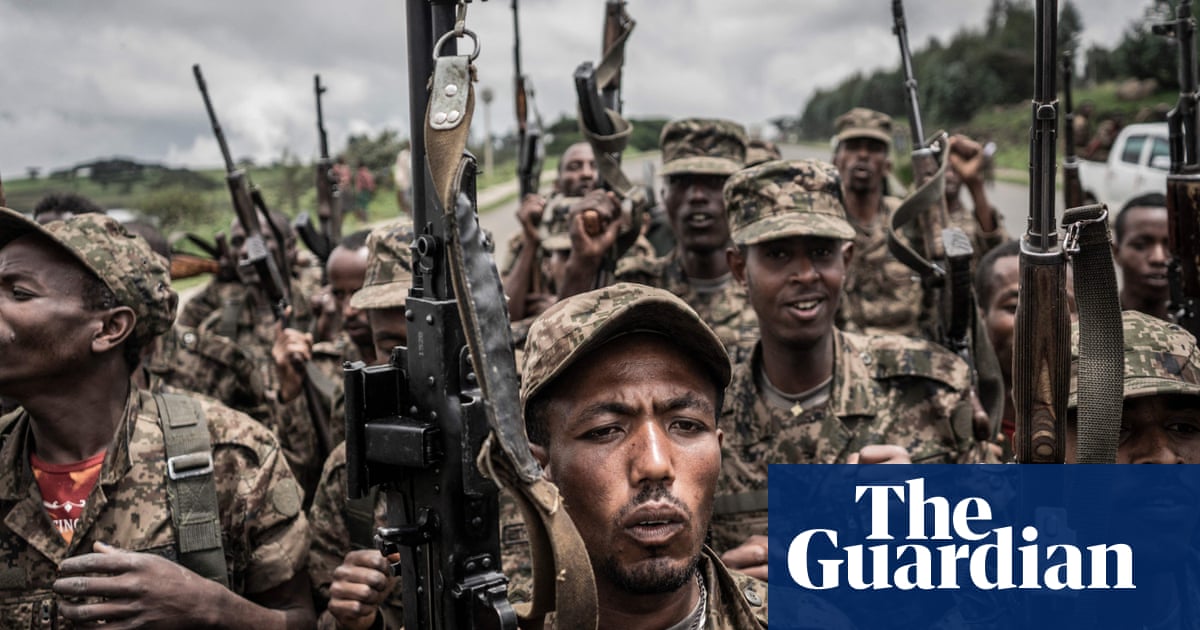
Ethiopian government troops went door-to-door killing dozens of civilians last month in a town in the country’s Amhara region, according to residents, who said the bloodshed took place after clashes with local militia.
The killings in Merawi appear to be one of the deadliest episodes in Amhara since a rebellion by Fano, an armed Amhara group, erupted last year over a disputed plan to disarm regional forces.
The Fano fought alongside Ethiopia’s federal military in the two-year civil war against the Tigray People’s Liberation Front (TPLF), which ended in November 2022. However, the government came to see it and other regional forces as a threat to its authority.
Ethiopia’s government bans journalists from travelling to the increasingly lawless Amhara region and has cut its internet. The Guardian spoke to people in Merawi by phone. Everyone interviewed spoke on condition of anonymity, for fear of retribution.
The bloodshed started on 29 January, after several hours of fighting between federal forces and Fano militiamen, witnesses said. When the militia retreated, soldiers went into houses targeting civilians, accusing them of being fighters, they said.
One witness said he spent that day cowering at home as “the constant sound” of gunfire rang through the town. He added that artillery hit civilian areas.
The next day he went outside and saw “at least 34 bodies” in the street, which were collected by townspeople. Some had gunshot wounds to the head with “their faces completely blown out”, he said.
Another witness, an Orthodox priest who arrived in Merawi on 30 January, said he saw “around 50 bodies lying on the main road” of the city. Many victims “seem to have been killed execution-style, with a bullet wound to their heads”, the priest said.
The priest’s brother was killed during the violence, shot several times on his doorstep by soldiers who stole money and his phone, the priest said.
A third resident said he knew of at least 45 people who were killed, including his brother, who he discovered “with bullets lodged in his head”. He said the violence happened over two days, with soldiers “barging into homes [and] smashing doors”.
The Ethiopian Human Rights Council, the country’s oldest civil society group, put the total death toll at more than 80 civilians. It released a statement on Tuesday calling for further investigations. It did not say who it believed carried out the killings, but called on the government to “hold the responsible parties legally accountable”.
The US ambassador to Ethiopia, Ervin Massinga, called for a full investigation, saying the US government was deeply concerned about the reports.
On Friday, Ethiopia’s parliament extended a state of emergency introduced in August to quell the unrest. Daniel Bekele, head of the country’s state-appointed human rights body, said he was gravely concerned by the extension of the emergency, citing mounting civilian casualties, pre-trial detentions and humanitarian needs.
Daniel told the Guardian that his organisation had not yet completed its investigation into the Merawi killings, and that it had documented a range of abuses in Amhara since August. These included the shelling of civilian areas, ethnically motivated arrests and killings. In November, Human Rights Watch said: “The authorities have resorted to past repressive tactics to limit access to real-time information and independent scrutiny.”
On Tuesday, the prime minister, Abiy Ahmed, called on “extremists operating in the Amhara region” and rebels in the neighbouring state of Oromia “to lay down their arms and take part in peaceful political struggle”. Thousands of people arrested under the state of emergency have been re-educated and released, he added.
Abiy’s government announced a plan to integrate regional forces into the federal military and police in April 2023, sparking clashes. In August, Fano militiamen, who enjoy widespread support in Amhara, briefly took over several towns and airports in the region, amid fierce street battles and mass protests.
Since then, they have retreated into the mountainous countryside, waging a guerrilla campaign of hit-and-run attacks and regularly raiding police stations in towns for weapons. The US and the UK advise against all travel to Amhara, which is home to several of Ethiopia’s best known tourist attractions.
Yet the government is determined to press on with plans to hold a high-level peace and security summit, involving heads of state, in the regional capital of Bahir Dar in April, despite objections by some of those invited, according to a western diplomat. Bahir Dar is just 18 miles north of Merawi. The summit was supposed to take place in October, but was postponed by the organisers who cited unforeseen circumstances.
Aid workers say the insecurity is impeding the delivery of humanitarian food in the region, where the federal ombudsman says dozens of people have starved to death recently amid a heavy drought and the after-effects of the Tigray war, which spilled into Amhara. Hundreds more starvation deaths have been reported in Tigray.
Regional Amhara forces including the Fano are themselves accused of waging a bloody ethnic cleansing campaign since November 2020 in western Tigray, an area they claim as their own and moved to annex during the war against the TPLF.
The Ethiopian government could not be reached for comment.









